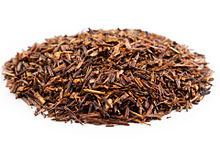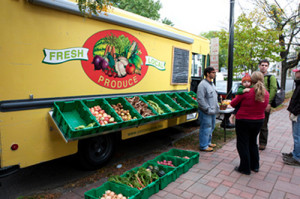Food Safety Talk, a bi-weekly podcast for food safety nerds, by food safety nerds. The podcast is hosted by Ben Chapman and barfblog contributor Don Schaffner, Extension Specialist in Food Science and Professor at Rutgers University. Every two weeks or so, Ben and Don get together virtually and talk for about an hour. They talk about what’s on their minds or in the news regarding food safety, and popular culture. They strive to be relevant, funny and informative — sometimes they succeed. You can download the audio recordings right from the website, or subscribe using iTunes.
The guys started the show by sharing some family traditions including watching Jeopardy and drinking Rooibos tea.
They then discussed some raw milk questions posed by raw milk producer. Don suggested that there was specific scientific evidence to answer many of them. He also wondered about the scientific basis of some of the information presented in a recent RMI webinar.
Don then shared that he’ll be podcast cheating again on an upcoming Raw Food Real Talk episode on cottage food. The guys then transitioned to a recent cheese related Listeriosis outbreak affecting members of the Hispanic community. While health authorities have released some information on illnesses and the product there are many questions that are still to be answered.
After a false start and then covering the last part of the IAFP History, the 2000’s, Ben put out a call to listeners for important outbreaks and food safety landmarks that Ben and Don could discuss in the upcoming Outbreak Flashback segment. It will be groovy. And have a disco theme.
The guys then turned to pizza and Alton Brown, who Don went to see live. Alton had dropped the pizza base before cooking it and that got Don worried about what message this was sending. Ben was amused by Alton’s Twitter feed and fascinated by his earlier career. While on the pizza topic, Ben found some really stretched science reporting of this research article. The press release reminded the guys of Betteridge’s law of headlines. The answer is always no.
The discussion of media reminded Don of this Andrew Gelman post about how to get your university press release reprinted by The Washington Post. Don concluded that the best practices for engaging people are also despicable. Ben suggested sometimes science-types need to go to where people are engaged and sort of play the same game. To quote Merlin Mann from 43 Folders: “Joining a Facebook group about creative productivity is like buying a chair about jogging.”
To finish off, Ben raised the issue of consumers not following label instructions, as was the case with E. coli in Nestle Toll House Cookie Dough. Ben wanted to know how consumers learn about products and how to use those products.
In the after dark the guys covered Picturelife, and Siri not having what Don was looking for, which he posted on Facebook.









